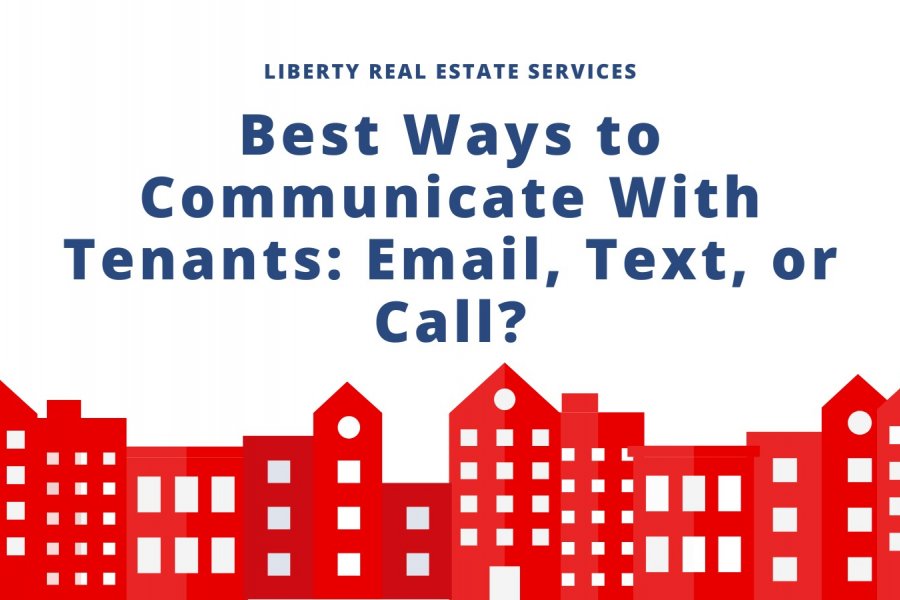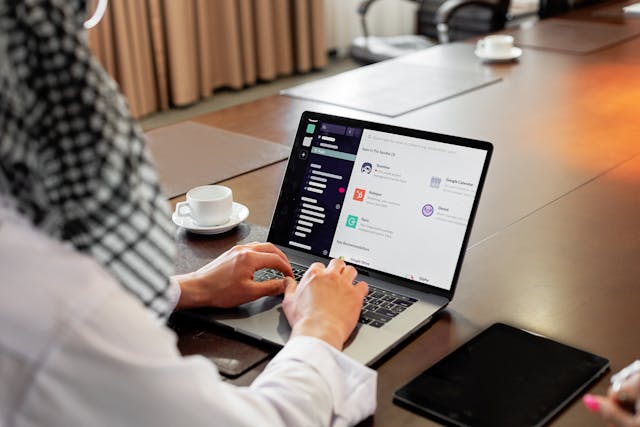
Unlike before, landlords nowadays have plenty of options available to get in touch with their tenants. However, the availability of too many tools can also make it confusing which to choose for a specific situation.
When is it acceptable to email, text, or call your tenants? If you are always going back and forth over which action to take for a particular scenario, learn more by reading our guide.
Phone Calls
During a long tenancy, phone calls with renters are likely to occur. For instance, you may need to inform them about a scheduled property inspection or upcoming renovations. Renters might also reach out by phone to clarify matters, such as guidelines for having guests.
When to Call a Tenant
Emergencies: this requires urgent responses, so you need to pick up the phone and call a renter to learn more about a situation, provide instructions, and issue status updates. Getting and giving information quickly is a priority, so you need to call.
Courtesy reminders: while there are other available ways to inform renters about due payments and complaints. You need to call them if you want to get paid on time after several late payments. You also want to de-escalate conflicts by calling renters about property policy violations.
Information gathering: if you are investigating a complaint, you also need to get info right away and would need direct communication. Reading messages over email or text can take too much time, especially if you need to clarify specific details. It is best to contact tenants straight away to gain the full story.

Best Practices for Calling Tenants
While it can be common to call people, it can also be inefficient due to missed calls and voicemails.
Here are some effective tips when contacting renters over the phone.
-
Act professionally: Avoid wasting time and mention the reason why you called. A renter may be busy or not feeling chatty, so it is best to steer the conversation to the matter right away.
-
Leave a detailed voicemail: Nothing can be more annoying than receiving a vague voicemail. If people are confused, they might end up not calling back since you failed to mention the urgency of a response. Be professional when leaving a voicemail.
-
Be personable when calling: Calls may not let you see a renter’s face but people can tell what you are feeling by the tone you are using. Extend a friendly and polite greeting to a renter.
-
Avoid calling past business hours: Keep within the bounds of contacting renters during business hours, except during an emergency. When talking with them, state the reason right away and make sure it is business-related. This is a great way of respecting the privacy of your renters.
Another popular method for contacting tenants is through emails.

When to Email a Tenant
Sharing photos: since files can get heavy, sending photos through email is ideal for efficient sharing and organization.
Sending reminders: it helps you streamline the process of alerting renters. With several automated software accessible to landlords, it is fairly effortless. Renters can also access their invoices containing complete info on payment due dates and rental fees, including extra fees through email.
Sending quick information: especially if you handle many rental properties and you need to distribute info quickly. Emails can be advantageous for the mass sending of messages.
Storing information: such as having documented communication with a tenant to keep track of time and date stamps. It is vital for showing proof in a dispute.
Best Practices For Emailing Tenants
Before sending a message to your renters, make sure you review to ensure the following:
-
The message is clear and complete.
-
The email has a purpose.
-
The email contains updated contact information.
-
The right file is attached.
-
The emails are sent during normal working hours.
Texting
Text messaging tenants can be a convenient and quick way to communicate, offering a non-intrusive method for reminders or updates while creating a written record. However, it may lack the personal touch needed for more complex or urgent issues.
When to Text a Tenant
Quick reminders or updates: for simple, time-sensitive reminders such as rent due dates, maintenance schedules, or building access updates, text messages provide a fast and efficient way to communicate.
Non-urgent issues: when you need to share information that doesn't require an immediate response or in-depth discussion, texting is a convenient way to send brief details without interrupting the tenant's day.
When you need a quick acknowledgment: Texting is ideal when you need confirmation or a quick response on simple matters, like confirming an appointment or acknowledging receipt of documents or payments.

What Are the Best Practices for Texting Tenants?
-
Ask renters if they are open to text messaging as a communication tool or way to receive info. Make sure to get written approval and include this in the lease agreement to minimize potential complaints later on.
-
Inform renters how frequently you will be sending text messages and the topics of the message. They should know what to expect. Ensure the message is business-related, such as status updates on repairs, rental due reminders, and property inspection schedules.
-
Offer renters a guideline of what information or inquiries to text but if you have a tenant portal system, recommend that this is the best way to send a message.
Bottom Line
While there are different communication options to exchange info with renters, you need to consider the situation and the most favorable tool to use. If your renters are made up of a younger demographic, then they will be more comfortable with text messages. Still, some prefer specific methods, so make it a point to ask.
Are you seeking a trusted and experienced property management team to handle your property and tenant issues? If yes, contact Liberty Real Estate Services today!
